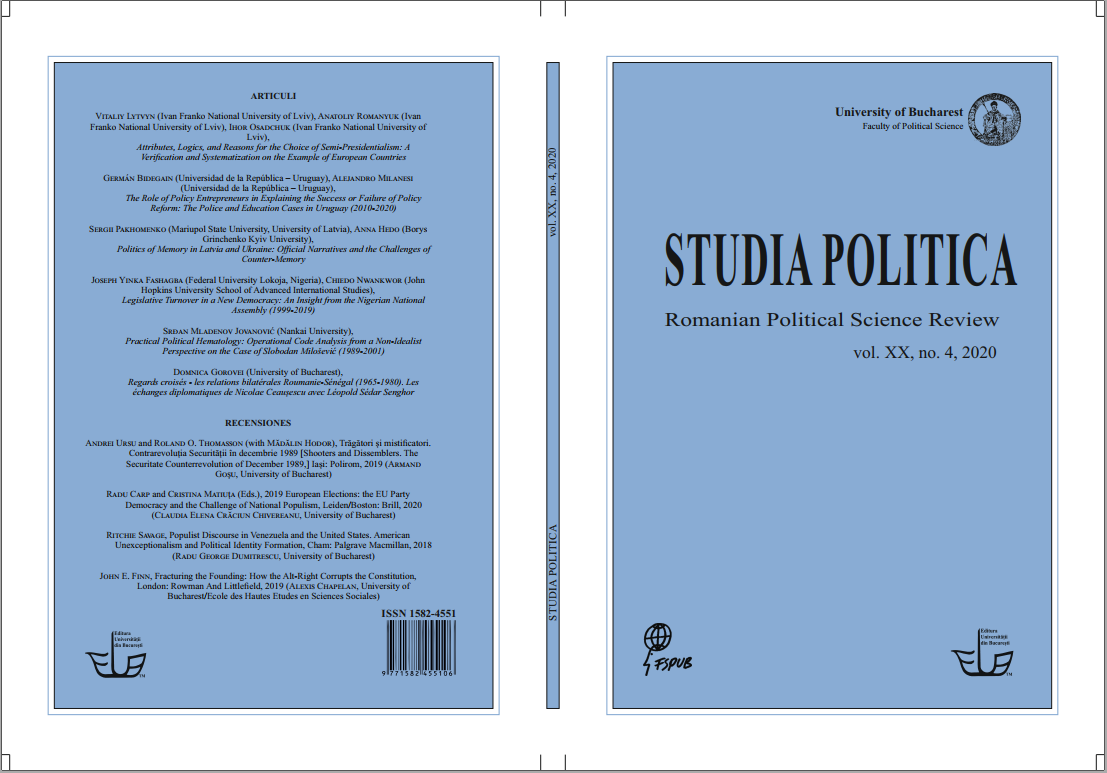Attributes, Logics, and Reasons for the Choice of Semi-Presidentialism: A Verification and Systematisation on the Example of European Countries
Attributes, Logics, and Reasons for the Choice of Semi-Presidentialism: A Verification and Systematisation on the Example of European Countries
Author(s): Vitaliy Lytvyn, Anatoliy Romanyuk, Ihor Y. OsadchukSubject(s): Politics / Political Sciences, Editorial
Published by: Editura Universităţii din Bucureşti
Keywords: System of government; semi-presidentialism; attributes of semi-presidentialism; logics and reasons for the choice of semi-presidentialism; European countries;
Summary/Abstract: This article is devoted to the study of the attributes, logics, and reasons for the choice of semipresidentialism in European countries. The supposition is that the verification and systematisation of the attributes of semi-presidentialism can be both constitutional and political that confirms it’s both institutional and political nature. Firstly, the article focuses on theoretical, methodological, practical, and empirical tools for the verification and systematisation of the attributes, logics and reasons of semi-presidentialism. Secondly, the article concerns the systematisation of the attributes and cases of semi-presidentialism in Europe. Thirdly, the study addresses the logics, patterns and reasons for the choice, attribution, and development of semi-presidentialism in Europe. It was stated that semipresidentialism can be distinctively delineated formally (institutionally-procedurally) and actually (politically-behaviourally), even though it is outlined by the common definitional attributes. Thus, European semi-presidentialism is not a homogeneous, but a heterogeneous phenomenon. It remains the most common constitutional type in Europe, even though its attribution, logics and reasons have not created the equilibrium state in European countries. Therefore, the descriptive novelty is that semi-presidentialism is distinctively positioned formally and actually, since despite definition it is characterised by diverse complementary (typological) and temporary (transitive) attributes and reasons for the choice. In turn, the analytical novelty is that semi-presidentialism as the dominant European model operates quite variably in practice, certifying that its formal side does not always correspond to its actual side.
Journal: Studia Politica. Romanian Political Science Review
- Issue Year: 20/2020
- Issue No: 4
- Page Range: 469-497
- Page Count: 29
- Language: English

